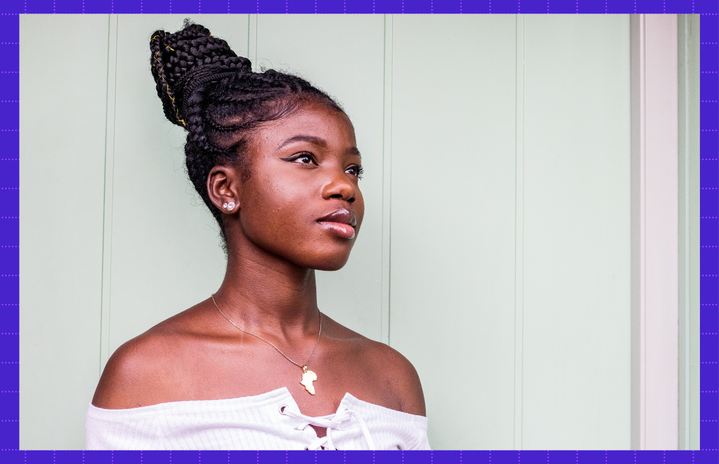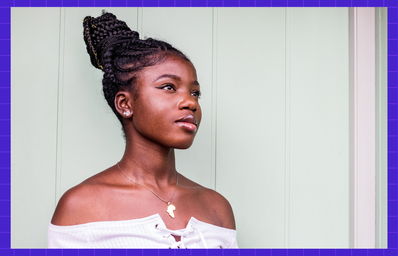As unbelievable as it is, this month marks the first WAPiversary, a.k.a. one year since Cardi B. and Megan Thee Stallion released their controversial track, “WAP.” The song, in addition to dominating the charts and cementing a new vocabulary word within the American lexicon, generated rather passionate responses among the public–ranging from accusations that it was responsible for the corruption of American youth to suggestions that Cardi B and Megan Thee Stallion should seek medical treatment for their abnormally wet “p words.” Considering the fact that it’s “WAP’s” birthday and that there’s a possibility of it getting a younger sibling in the near future, I thought that it would be worthwhile to reexamine one of the more consequential debates that it sparked last fall: whether it, as writers like Haylee Thorson claim, promotes female empowerment.
Why “WAP” Promotes Female Empowerment
“Cardi B and Megan Thee Stallion spearheaded a new wave of female empowerment with the release of their first collaborative anthem, “WAP””-Rhea Cartwright, PopSugar contributor.
“My favourite part about WAP is that it promotes women articulating sexual agency, prowess, desires, demands and autonomy, and it’s also getting men upset”–Sharine Taylor, editor of BASHY Magazine.
“With WAP, Cardi and Megan are reversing gender roles, owning their sexuality in a way we typically see men do”-Brittney Mcnamara, Teen Vogue Contributor.
Some, like the writers above, opine that “WAP” empowers women primarily because it emphasizes the importance of female choice in the bedroom. Rather than talk about sex in a way that involves coercion, an imbalance of power, and/or a selective focus on male pleasure (themes that frequently plague songs in which male artists describe their sexual fantasies), Cardi B and Megan Thee Stallion flip the narrative by boasting about the agency that they have in their sex lives, their ability to play dominant and submissive roles, and the reciprocity that they enjoy with partners. What I personally find so significant about how they describe their experiences is that they affirm the possibility of the kind of non-predatory, mutually beneficial sexual dynamic that women have been dreaming about for decades–if not centuries.
Another central tenet of the WAP-is-female-empowerment viewpoint is that Cardi B and Megan Thee Stallion unapologetically embrace their sexualities in a culture that discourages women from doing so. Teen Vogue editor Brittney McNamara expands on this idea in”’WAP’ Reaction Shows How Threatened Men Are By Female Sexuality” with her assertion that men have “always been the arbiters of sex,” which has enabled them to “talk about it in whichever ways they please, but decide when and how women can express their own sexuality.” McNamara’s point explains exactly why so many male rappers like Snoop Dog, whose discography is full of vile, pornographic lyrics about women, were so perturbed by “WAP’s” release: they see women reclaiming their sexual power as threatening to male supremacy and the benefits that men receive from being able to exploit women as they please.
Why “WAP” Does Not Promote Female Empowerment
“Women are intelligent, complex, thoughtful, nurturing, talented, capable, and bring so much to the table. Of course they’re sexual beings, but to reduce a woman to her sex appeal is anything but empowering . . .”–Hayley Lewis, Evie Magazine Contributor.
“The song demands material goods for sex (“ask for a car while you ride that d–k”) and even requests acts of sexual degradation (“spit in my mouth,” “tie me up,” “I want to choke”)”–Rikki Schlott, New York Post Contributor.
“Even though I love seeing black women entertainers enjoying their bodies and their sexualities and doing so in their performances, we should be concerned that black entertainers [in] rap, R&B, and even pop are expected to do that particular kind of performance to get on and have hits in 2020”—Kim Foster, YouTuber and creator of ForHarriet.
One of the most compelling arguments for why “WAP” is not empowering is that Cardi B and Megan Thee Stallion participate in their own objectification, both by bragging about their genitalia and leveraging their bodies for cars and tuition payments. Expounding on the last point, Cardi B and Meg’s usage of sex for financial gain transforms the act from a fun interaction between two consenting adults into a transaction: they are the sellers, their bodies and sexual services are the items being sold, their male partners are the buyers, and the car/tuition is the capital. Although the women are benefitting from the exchange (in the spirit of “it’s not what you can do for the patriarchy; it’s what the patriarchy can do for you”), they’re being reduced to mere commodities in the process. This dehumanizing dynamic only reinforces the sexist notions that women are financially dependent on men (ie. we have to ask men for material goods because we can’t provide for ourselves) and that a woman’s value is determined by what she’s able to do in bed. Not to mention how it parallels (to me at least) the ways in which women in the professional world experience pressure to engage their male superiors in sexual acts in order to advance their careers.
Another reason why some feminists believe that “WAP” does not promote female empowerment has to do with factors that extend beyond the song itself. Given that the persistence of the jezebel trope has conditioned American audiences to recognize black women as voluptuous, hypersexual seductresses, it has created not only the expectation but the requirement that black female artists invoke that stereotype. Meaning, that in order for black women to find success in the industry, they need to participate in the kind of raunchy performances that (majority white) audiences and executives associate with them . . . When looking at “WAP” from this historical angle, it is easy to see why it isn’t considered uplifting: rather than opening up the space to create a more expansive vision of what black womanhood is, Cardi B and Megan Thee Stallion operate within the constraints placed on them. It is important to note, however, that they shouldn’t be blamed for this when it’s not necessarily their job to create music that pushes boundaries, nor is it their fault that the music industry doesn’t allow for much variety or nuance when it comes to black women’s representation.
My Opinion
I honestly don’t think that there is an objective “right” side to this debate; the answer to whether “WAP” promotes female empowerment depends on what each individual person finds empowering.
In terms of my personal opinion, I think that aspects of the song, like its subversion of the notions that sex is solely about male pleasure and that women don’t desire to have sex, are. However, in its entirety, I struggle to deem “WAP” a liberating feminist anthem because, in spite of the aspects that I just mentioned, it is still centered around catering to what men find attractive (which women are taught to do their entire lives) and women’s sexual performance. I completely understand wanting to be wanted, but I believe that we should start focusing more on finding validation within ourselves and living for ourselves rather than caring about what men think.
That being said, I still enjoy listening to “WAP,” and I ADORE the fact that it upset so many misogynists. I’m also excited about how it triggered a necessary conversation with respect to women’s (more particularly, black women’s) representation in the media, and I hope that it leads to further dialogue about structural changes that can be implemented in order to start showcasing us in the fullness of our humanity.


